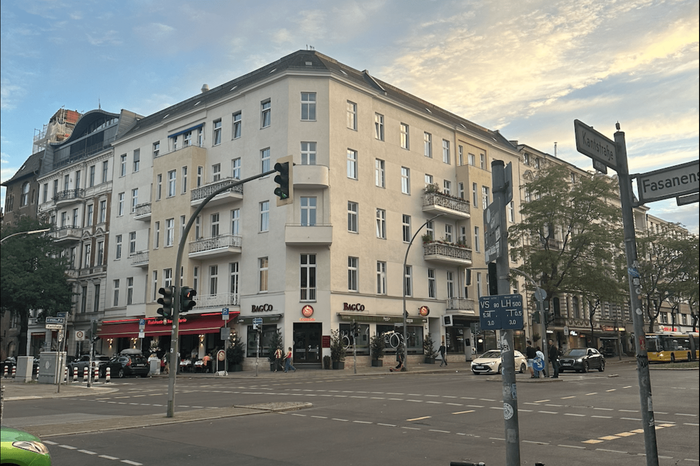Raising the (Instagram) profile of the year abroad
Alex Brian speaks with year-abroad students about their digital portrayals of the year away, and how much they reflect the reality

Don’t lie to me: your Instagram is not a perfect reflection of your life. Our online identities are curated to show people what we want them to see. And this remains true on the year abroad. Stuck in Cambridge, racing towards another deadline, it might be jarring to see your friends chilling on a Barcelona beach. Just know that the year abroad is multifaceted and you might not be getting the whole picture.
“Just know that the year abroad is multifaceted and you might not be getting the whole picture”
Cantabs post about their years abroad for all sorts of reasons, which can influence the perspective they provide. Some, like @poppyaroundtheworld, create separate accounts to update close friends without bombarding the feeds of acquaintances. For Poppy, social media offers an alternative to constant messaging, which can be “quite mentally draining.” Others, like @paddyjoe25, are full-blown influencers, publishing vlogs and even street interviews. Several accounts, notably at Fitzwilliam, Medwards, and Queens’, bring together multiple MMLers from one college to share their experiences, not only with loved ones but also with future year-abroad students. For Noah of @fitzabroad, forming joint accounts creates a sense of community: “We know we’re not alone in going out of our comfort zone.”
Whatever their motivations, almost everyone interviewed suggested their posts would form a significant part of how they look back on their years abroad. “I love having a video diary of my life,” emphasises Paddy. But how comprehensive is this diary? “I wouldn’t say I’m completely honest,” he admits, explaining that he omitted many of the challenges of adjusting to Spanish life. Everyone interviewed hoped to convey a positive impression of the year abroad. Partly, this stems from a wariness of seeming ungrateful. “I don’t want to be sat in Spain moaning about living in Spain,” laughs Paddy.
“I love having a video diary of my life”
Interestingly, Paddy reports being more honest on TikTok than Instagram despite having many more followers on the former. Whereas Instagram is his meticulously curated “baby,” for Paddy, “it’s more socially acceptable to be yourself on TikTok.” Anything Poppy wouldn’t include in a text to a friend won’t appear on the Gram – from the mundane (“how shocked I was at the price of pesto in Kyrgyzstan… I almost cried in the supermarket”) to the unfortunate (food poisoning). But, for Poppy, this approach mimics the natural biases of memory. “The year abroad is a bit like childbirth,” she exclaims, “you’re designed to forget the painful bits!” This filter serves a useful purpose, as recalling past achievements helps Poppy confront new challenges.

Nevertheless, both students recognise the pitfalls of overlooking negative experiences. “There’s loads of travel content on the Internet,” Poppy acknowledges, but little advice for “young people living abroad for the first time”. Paddy hopes to remedy this by sharing the drudgery of visa and job applications. This is just one example of new content Paddy has piloted in Spain. His favourite video is a street interview about the use of Catalan in Barcelona. Paddy was nervous, especially due to the political subject. But would he ever have as much time and freedom to experiment? As he says, “I’m abroad! Why not?” Soon, he hopes to venture into the world of comedy skits.
But what about non-influencers? Poppy’s posts mainly centre around trips she has taken outside Bishkek, her new hometown: “To the untrained eye, it might look more like a gap year or backpacking account.” Other pages are more comedic. @Sachasangels comprises a bizarre array of inside jokes, enticing friends to enquire about the duo’s Parisian adventures.
Influencer or not, it’s impossible to escape the impact of online travel content. Paddy looks to study tubers like Eve Bennet for inspiration, while Poppy emulates clips she enjoys, such as reviews of Bishkek cafés. Both agree that TikTok outperforms Google and TripAdvisor for travel recommendations. Not only is the advice more genuine, but the visual medium makes it easier to evaluate.
“The main benefit for Poppy has been the ability to challenge her friends’ misconceptions about Kyrgyzstan and Senegal”
The difference is the effort required. Whereas Poppy often forgets to post for weeks, Paddy spends most evenings editing content. Nevertheless, he disputes the argument that this prevents him from living in the moment. “I found myself appreciating it more,” he says of the impact of filming on his year abroad.
The main benefit for Poppy has been the ability to challenge her friends’ misconceptions about Kyrgyzstan and Senegal. “For somebody contemplating doing something a bit weird,” she continues, “I’d hope they could see that it’s not quite so scary as everyone makes it out to be.” Posting is also a way to share her love for photography: “Where else am I going to put the 200-odd photos from my family’s digital camera?” She chose Instagram over TikTok as “the effort of making a TikTok video is quite large.” However, it’s worth saying that her posts are incredibly detailed. “True,” she laughs, “I’ve had longer word counts in captions than dissertations.”
Others spurn the traditional apps altogether. For Luca, much of online travel content is “a bit overdone.” He prefers to update his friends via a monthly Substack newsletter. “I’m not doing anything for the newsletter, not even intentionally taking pictures,” he stresses, reflecting his aversion to letting social media influence his life.
Yet even Luca’s example demonstrates Cambridge students’ desire to document their travels online. What we’ve learned from these conversations is that, whether or not these portrayals are completely accurate, this impulse can have numerous benefits. From staying in touch with friends to challenging misconceptions about scarcely visited locations, social media has uses that can spread the impact of the year abroad beyond the individual MMLer.
 Comment / The (Dys)functions of student politics at Cambridge19 January 2026
Comment / The (Dys)functions of student politics at Cambridge19 January 2026 News / Local business in trademark battle with Uni over use of ‘Cambridge’17 January 2026
News / Local business in trademark battle with Uni over use of ‘Cambridge’17 January 2026 Features / Exploring Cambridge’s past, present, and future18 January 2026
Features / Exploring Cambridge’s past, present, and future18 January 2026 News / Your Party protesters rally against US action in Venezuela19 January 2026
News / Your Party protesters rally against US action in Venezuela19 January 2026 Lifestyle / Seoul food19 January 2026
Lifestyle / Seoul food19 January 2026







